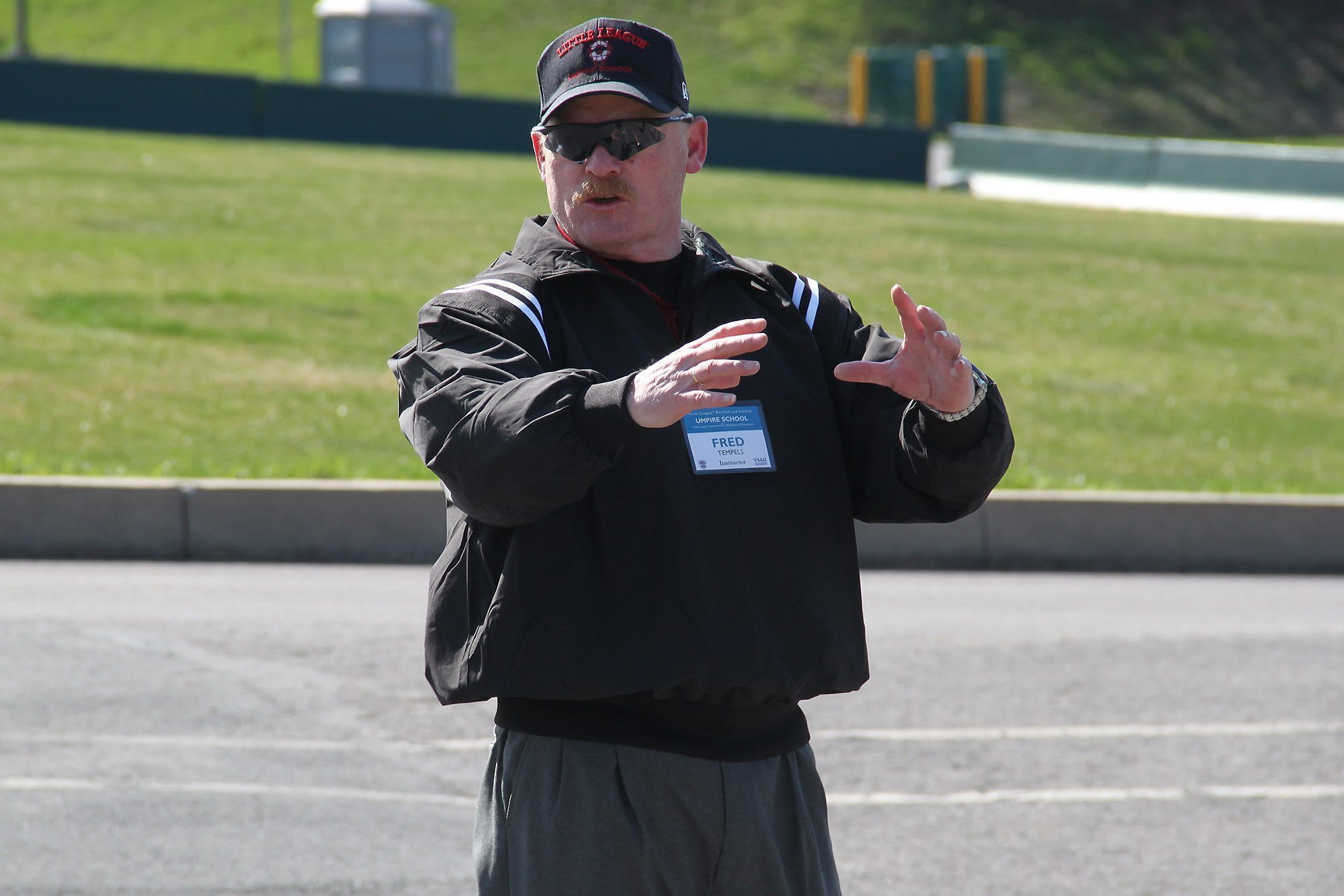
Each spring, umpires travel to Little League® International in Williamsport, Pa., for Little League Umpire School. The week-long school immerses game officials in training and education opportunities that are designed to hone their skills, build confidence, and all them to serve as role models for other local officials.
Throughout the five days, Tom Rawlings, Little League Director of Umpire Development, along with his corps of instructors, explored and explained Little League rules interpretations in a classroom setting, then put their mechanics training into action by calling regular-season games on Howard J. Lamade and Volunteer Stadiums.
Among the participants was first-time camp instructor, Fred Tempels. Mr. Tempels of Winnweiler, Germany, is the Umpire-In-Chief of Little League’s Europe and Africa Region. He has been a Little League volunteer umpire for more than 25 years and, following the 2018 Tournament Season, where he will serve as an umpire at the Little League Baseball® Intermediate (50/70) World Series in Livermore, Calif., he will have worked every baseball World Series Tournament outside of Williamsport. He calls the experience of working a World Series, no matter how many times he’s worked one, “overwhelming.”
“What I like the most is that, amongst each other, umpires are one big family. It’s a team. There’s no rivalry,” said Mr. Tempels.
And that’s exactly what the Little League Umpire School is all about. It’s about everyone improving no matter how many years they’ve been donning the gear.
“It was important to have Fred join us in Williamsport,” said Mr. Rawlings. “Fred had the ear of the students and thrived in the instructor role, but was also absorbing as much as he could. It was a wonderful opportunity for him, and I trust he will use this experience to help expand the umpire training efforts across his region.”
One of the highlights of camp for everyone in attendance was a message from Stephen D. Keener, Little League President and CEO, who spoke to the assembled umpires about the importance of their role in the Little League program. Mr. Tempels was especially moved by Mr. Keener and Mr. Rawlings’ emphasis on the most basic Little League umpire principle, “it’s not us the umpires, it’s all for the kids.”
“If they’re in a game way behind occasionally a pat on the back and a whisper in the ear of the catcher does wonders,” said Mr. Temples.
Arriving two days prior to the start of school, Mr. Tempels had the opportunity to meet several Little League International staff members, including Mr. Keener, and become acclimated to the time change. His hometown is six hours ahead of daylight savings time in the eastern United States.
“(The complex) offers a special atmosphere,” said Mr. Temples. “Here, the umpires can get to know each other better on and off the fields. I can ask my questions everywhere and get answers and everyone is quite willing and happy to help.”
For Mr. Tempels, Little League Umpire School served as more than just an extended clinic. In addition to lessons learned on plate mechanics and instructing others, he took home many ideas about developing and expanding the in-person education offered to umpires in the Europe and Africa Region, and is proud to have met many other members of the umpire family.